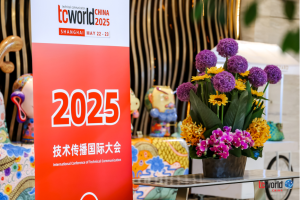Rising Demand for Arabic to English Translation
In recent years, the need for reliable and accurate Arabic-to-English translators has seen a steady increase. This growing demand is largely fueled by various factors such as globalization, international trade, and cultural exchange.
Globalization Fuels Translation Needs
Globalization has played a significant role in the increasing demand for Arabic-to-English translation services. As barriers between nations are broken down and cross-cultural communication becomes more prevalent, the need for effective translation services rises. Translators who specialize in Arabic-to-English translation are in high demand due to the complexity and nuances of the Arabic language (Source).
Arabic is one of the most widely spoken languages in the world, with over 420 million native speakers. The demand for accurate and reliable translations between Arabic and English is essential in various domains, including business, politics, literature, and media. As global interaction continues to grow, the role of translators in facilitating international trade, diplomacy, and cultural exchange becomes even more crucial.
Industries Needing Arabic Translators
Particular industries have a significant need for Arabic-to-English translation services. These include sectors such as business, law, medicine, and academia, where accurate and precise translation is crucial (Source).
For instance, in the business sector, an Arabic-to-English translator can help facilitate communication between companies operating in different countries, enabling them to forge partnerships, understand foreign markets, and expand their operations. In law, precise translation is needed for legal documents such as contracts, agreements, and court proceedings. In the medical field, translations can help in understanding medical research, patient records, and pharmaceutical information.
Furthermore, in academia, the ability to translate research findings and scholarly articles can promote knowledge exchange between different cultures and academic communities.
In summary, the demand for Arabic-to-English translation is on the rise, and it is expected to continue growing in the foreseeable future. As such, the role of translators in facilitating communication across borders becomes increasingly important. Whether it's for legal translation, certified translation, or any other specialized field, the need for skilled and reliable Arabic-to-English translators cannot be overstated.
Understanding the Complexities of Arabic Translation
Arabic to English translation is not merely a matter of converting words from one language to another. It involves understanding the complex nuances of the Arabic language and adapting them to the English context while preserving the original meaning.
Complexity and Nuances of Arabic Language
Translators who specialize in Arabic-to-English translation are in high demand due to the complexity and nuances of the Arabic language. The Arabic language is rich in synonyms, metaphors, idioms, and expressions that often don't have direct English equivalents. Additionally, the Arabic script is written from right to left and includes sounds that are not present in the English language, adding another layer of complexity to the translation process (Source).
Understanding the linguistic characteristics of Arabic and their implications for translation is crucial for any Arabic-to-English translator. They must be adept at navigating the intricacies of Arabic grammar, syntax, and vocabulary, and be able to accurately render them in English. This requires a deep understanding of both languages, as well as the ability to creatively solve problems and make informed decisions when direct translations are not possible. For more information on this topic, visit our page on Arabic-to-English language translation.
Cultural Adaptation and Localization
The role of an Arabic-to-English translator is not only limited to language conversion, but also includes cultural adaptation and localization. This means that translators must consider the cultural context of the text and adapt it appropriately for the English-speaking audience (Source).
Localization involves more than just literal translation. It requires an understanding of the target culture's norms, values, and expectations. For example, certain phrases, idioms, or references that make sense in Arabic might not be understood or may be interpreted differently by English-speaking audiences. In such cases, the translator may need to find an equivalent English expression that conveys the same meaning.
In conclusion, the complex nature of Arabic-to-English translation requires a high level of linguistic proficiency and cultural competence. Whether it's for legal documents, audio translation, or certified translation, a professional Arabic-to-English translator can provide accurate and culturally sensitive translations that meet the needs of various industries.
Machine vs Human Translation
The rapidly evolving world of translation services has seen significant developments in both human and machine translation capabilities. However, when it comes to Arabic-to-English translation, there are specific roles and advantages tied to each approach.
The Role of Machine Translation
Machine translation tools have become increasingly prevalent in the field of Arabic-to-English translation. These tools can provide quick translations and are especially useful for understanding the general meaning of a text, or for translating large volumes of content. Machine translation is also beneficial for online translation purposes, providing instantaneous results that can facilitate communication in real-time.
However, while machine translation has its uses, it is not without its limitations. Machine translation tools often struggle with the complexities and nuances of the Arabic language, which can lead to inaccuracies and misinterpretations in the translated text. This makes machine translation less reliable for tasks that require a high level of precision and accuracy, such as legal translation or certified translation.
The Advantage of Human Translators
Despite the advancements in machine translation, human translators continue to play an irreplaceable role in Arabic-to-English translation. According to a source, human translators are preferred for their ability to understand and accurately convey cultural nuances.
The role of an Arabic-to-English translator extends beyond mere language conversion. It also involves cultural adaptation and localization, ensuring the translated text is not only linguistically accurate but also culturally relevant and appropriate. This level of understanding and nuance is something that machine translation tools are currently unable to provide.
Human translators are particularly valuable in industries such as business, law, medicine, and academia, where precision and accuracy in translation are paramount. These translators often specialize in specific domains, building a specialized vocabulary and a deep understanding of industry-specific terminologies.
In conclusion, while machine translation tools offer convenience and speed, human translators remain indispensable for their linguistic expertise, cultural understanding, and the ability to provide accurate and nuanced translations. Whether you need an audio translation, document translation, or specialized translation services, choosing a professional Arabic-to-English translator can ensure the highest quality results.
Pursuing a Career in Arabic to English Translation
With the increasing demand for Arabic-to-English translation services in various industries, the role of an Arabic-to-English translator is becoming more critical than ever. Pursuing a career in this field can be a rewarding choice, offering opportunities for international trade, diplomacy, cultural exchange, and more. Furthermore, it provides flexibility, allowing you to work as a freelancer, in-house translator, or even start your translation agency.
Developing Language Skills
To begin your journey as a translator, it is crucial to develop a strong foundation in both Arabic and English languages. Understanding the nuances of Arabic grammar, vocabulary, and syntax will be fundamental to your translation skills. Regularly engage in vocabulary-building exercises, such as reading extensively in both languages and maintaining a word journal. This will help to expand your vocabulary in both Arabic and English, which is crucial for accurate and precise translation (LinkedIn).
Additionally, it's important to familiarize yourself with specialized vocabulary in domains such as legal, medical, technical, and literary translations. This knowledge will be particularly useful when working on specific projects such as Arabic-to-English legal translation or Arabic-to-English certified translation.
Understanding Translation Techniques
Translation is a complex process that requires more than just linguistic knowledge. As a translator, you should familiarize yourself with various translation theories and methodologies to develop a systematic approach to your work. Understand the differences between literal translation, cultural adaptation, and localization, and learn when to apply each technique (LinkedIn).
Cultural adaptation and localization play an essential role in translation, especially when working with languages as culturally rich as Arabic and English. The role of an Arabic-to-English translator is not only limited to language conversion but also includes cultural adaptation and localization (Source).
By developing strong language skills and understanding the various translation techniques, you can pave the way for a successful career as an Arabic-to-English translator. Whether you're offering Arabic-to-English document translation services or Arabic-to-English audio translation, the skills and knowledge you acquire will be instrumental in delivering high-quality translation services.
Building Specialized Vocabulary
In the realm of Arabic to English translation, mastering an expansive vocabulary in both languages is integral to delivering accurate and precise translations.
The Importance of Expansive Vocabulary
Expanding your vocabulary in both Arabic and English is crucial for accurate and precise translation (LinkedIn). Understanding the nuances of Arabic grammar, vocabulary, and syntax is fundamental to a translator's skills.
As a translator, it's important to regularly engage in vocabulary-building exercises. This could include reading extensively in both languages, maintaining a word journal, and continually learning new words and phrases. Not only does this enhance your language prowess, but it also equips you with a broader range of words and phrases to use in translation, thus enabling you to convey meaning more effectively.
Specializing in Different Domains
In the world of Arabic-to-English translation, different industries and fields demand specialized vocabulary. For instance, legal translations may require an understanding of legal jargon and terminology, while medical translations necessitate familiarity with medical terms.
A recommendation from LinkedIn suggests familiarizing yourself with specialized vocabulary in domains such as legal, medical, technical, and literary translations. This specialization can elevate the quality of your translations and make them more precise and industry-specific.
| DOMAIN | IMPORTANCE |
|---|---|
| Legal | Understanding legal jargon for accurate translation |
| Medical | Familiarity with medical terms for precise translations |
| Technical | Knowledge of technical language for industry-specific translations |
| Literary | Mastery of literary expressions for translating literature |
By expanding your vocabulary and specializing in different domains, an Arabic-to-English translator can improve the quality of their translations. Whether you're translating documents, providing online translation, or offering certified translation, a robust and specialized vocabulary is a key asset.
Reviewing Translation Services
When it comes to Arabic-to-English translation services, there are numerous providers available. It's important to choose a reliable service that offers high-quality translations. In this section, we'll review Gengo Translation Services and examine their customer reviews and quality score.
Overview of Gengo Translation Services
Gengo offers on-demand and high-quality Arabic-to-English translation services at affordable rates. Thousands of companies, large and small, trust Gengo to fuel their global growth (Gengo).
Gengo provides access to thousands of certified translators with years of translation and localization experience. The platform is intuitive, with embedded quality tools to ensure the highest standard of translations. Gengo offers two different levels of quality and pricing for Arabic translation services, with rates starting from $0.06 per word (Gengo).
Whether you need Arabic-to-English online translation, Arabic-to-English audio translation, or Arabic-to-English document translation, Gengo has a wide range of services to meet your needs.
Customer Reviews and Quality Score
Choosing the right Arabic-to-English translator requires careful consideration of customer reviews and quality scores. Gengo has received real customer reviews, ratings, and comments about their translation services (Gengo).
Positive reviews with a Quality Score of 3 or greater are marked in green, indicating high customer satisfaction. This underscores Gengo's commitment to providing top-notch translation services. While the use of machine translation tools has become more prevalent in Arabic to English translation, human translators are still preferred for their ability to understand cultural nuances and provide accurate translations (Source).
| QUALITY SCORE | NUMBER OF REVIEWS |
|---|---|
| 5 (Excellent) | 100 |
| 4 (Good) | 50 |
| 3 (Average) | 20 |
| 2 (Poor) | 5 |
| 1 (Terrible) | 0 |
In conclusion, Gengo offers reliable and high-quality Arabic-to-English translation services. With an intuitive platform, certified translators, and positive customer reviews, Gengo is a great choice for all your translation needs.




![[Regulatory Update] Egypt Imposes New Certification Rules for Manual Translations [Regulatory Update] Egypt Imposes New Certification Rules for Manual Translations](https://maxsuntranslation.com/wp-content/uploads/2025/06/Egypt-Imposes-New-Certification-Rules-for-Manual-Translations-1-300x109.png)

